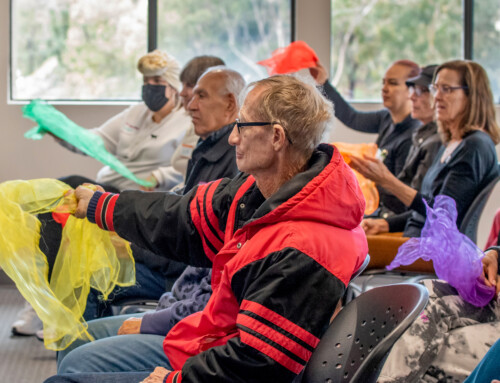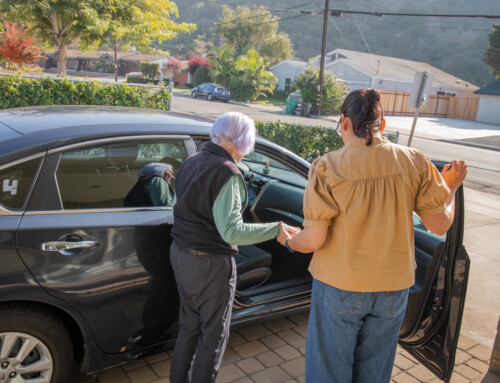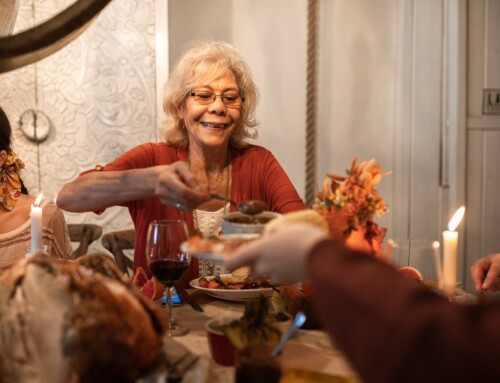
Welcome to part one of our new four-part blog series on Intimacy & New Relationships, where our Director of Clinical Services, Sarina Barker, will discuss the very real ways that loneliness and the lack of intimacy can adversely affect your life. Dementia changes relationships in a very fundamental way and it can be helpful to acknowledge these changes and to consider the options that you have when faced with a very different relationship with the person you deeply love. Part 2 / Part 3 / Part 4.
INTRODUCTION
I’ve been working professionally with care partners for a long time. I’ve talked with thousands of people about many of their struggles but one of the most sensitive topics that comes up relates to the loss of emotional and physical interactions, intimacy, and the longing for companionship in a new romantic relationship.
I have prepared this topic for you, the person who is a care partner, spouse, or intimate partner caring for someone living with dementia. As the disease progresses, bit by bit, your home and your life can become quiet, empty and very lonely. And the questions arise, “How do I restore some of the balance of my life? How can I end this terrible loneliness?” My intention of writing this series is to talk openly about these feelings and situations. As you know intimacy has been taboo, a topic that not everyone is comfortable discussing. In this series, we will talk more about the power of connection, understanding your unique emotions around dating again, and how to talk with others about it. There can be power in these conversations. They can lead to new knowledge, understanding, self-awareness, loss of shame and, most importantly, hope.
WE WERE NOT MEANT TO LIVE ALONE
Humans were never meant to be alone. We were wired for connection since the moment we were born, starting with an unending basic desire to be held and feel safe. Connection is a powerful aspect of who we are as individuals. Abraham Maslow, the psychologist who developed Maslow’s hierarchy of needs, stated that each of us has the same five basic psychological needs of survival: safety, loving and belonging, esteem, and self-actualization. In looking at these five areas as they relate to romance, it is clear that overall health and well-being are connected to feeling loved and secure– and that these are the basic needs in the human experience.
When it comes to caring for someone who may be psychologically absent but physically present, it can be difficult to find an ethical way to satisfy your basic need for survival while bumping up against the societal norms of what is expected of you in this stage of your life. Small, subtle feelings and emotions can grow into strong, and conflicting emotions as the care partner begins to feel two (or more) very opposite feelings. “I love my spouse deeply” and “I have never felt more alone.” Or “I am fully committed to caring for my spouse” and “I have an overwhelming need to end my emotional and physical isolation by developing a relationship with someone new.” Such new emotions can make you feel more isolated, confused, and guilty. You may wonder, “How can I possibly have these strong emotions when my partner is so sick and needs me so much?” How could I ever face my family and friends if they ever learned of these thoughts? I must be a terrible person.”
Keep reading. You’ll see that your feelings are the normal reactions of a human being who has become isolated from your spouse by a terrible disease.
THOUGHTS ABOUT DEVELOPING A NEW RELATIONSHIP
You may eventually decide that it’s time to begin a search to develop a new relationship to substitute for the one that is no longer possible. This usually occurs after you’ve been compelled to place your spouse into memory care. You remain absolutely committed to providing the same loving care to your spouse while seeking to fill the void left in your life by the absence of the one you love. In short, you may decide to begin to date.
To start, let’s talk about how you might start dating again.
Four questions to ask yourself are:
- Have you accepted that things are not ever going to be the way they once were? As each stage of the disease progresses, the person you once knew becomes a different version of themselves – someone who no longer has the ability to be your friend, partner and lover. Having realistic expectations of your current relationship with your spouse is necessary to determine if you have capacity to invest in a new relationship. It can be possible to maintain your commitment to care for your spouse while simultaneously developing a meaningful relationship with someone new.
- What aspects of companionship or intimacy are you longing for? I’ve heard a variety of answers to this question. Understanding who you are and what you need, your values, and aspirations is an essential component when it comes to identifying the important aspects to bring into any new relationship. It’s not simply because you are lonely, but it could be because you want to engage in intellectual conversations with someone, or maybe you just miss holding hands, or you are tired of going to the theater by yourself. Not every date will lead to a serious commitment. In fact, knowing what is important to you in a relationship will help you decide whether you need a friendship (someone to do things with) or perhaps a romantic partner (someone to be sexually intimate with). Whatever your answer may be, reflect on what you currently lack (physically, mentally, emotionally, sexually), what you desire, and what you feel you are capable of offering to someone else.
- What do you feel when you think about dating again? Excited? Nervous? Guilty? You may feel a range of emotions but the point of this question is to determine if you really feel ready or if you should allow yourself more time. Emotions are neither good or bad; they provide information about what is happening or what’s going on within us and around us. If you are struggling to decide or are feeling worrisome, insecure, or anxious, that’s a sign to give yourself some grace and just wait a little longer. Consider your emotional vulnerability and whether you have the mental capacity to build the foundation of something new.
- Have you identified your losses? From the moment of getting a dementia diagnosis, you began to experience loss and change. Change in marital roles, social circles, communication with our spouse, making hard decisions – just to name a few. We know this disease is considered a “long goodbye,” as the person we once knew is changing and operating at a slower pace. Over time, there are subtle losses (needing to verbally cue a person to complete a task, inaccuracies in storytelling) and significant losses (not being able to recall what happened an hour earlier, unable to recognize a family member or spouse). With each change, grief is present. The grieving process for this journey is unlike any other change. It is not linear, it is very complicated. Recognizing how much loss there has been in your relationship helps to interpret the depth of the pain you might have experienced. You are a different person than who you were before this disease. Learning more about yourself, your pains, and your triggers will help to label your emotions and create more transparency in how you communicate in your next relationship.
WHAT’S AHEAD NEXT WEEK
Getting a grasp on who you are today and the needs you have is the first step in knowing if you are ready to start dating again. We will talk more next week about the range of emotions you may encounter as you wrestle with the idea of this decision. Not everyone will agree with what is written throughout this series – and that’s okay. We like to think that everyone has the best of intentions, but until others have lived the 24/7 life of a care partner, it’s difficult to judge fairly another person’s need to seek love and companionship. We at Alzheimer’s San Diego welcome everyone regardless of how you feel or what you may be experiencing today. We are here to help and listen.
Talk to one of our Clinical Care Coaches by calling us at 858.492.4400, and view our free services like education classes, support groups, social activities, and much more.
By Sarina Barker, MSW (Director of Clinical Services)





